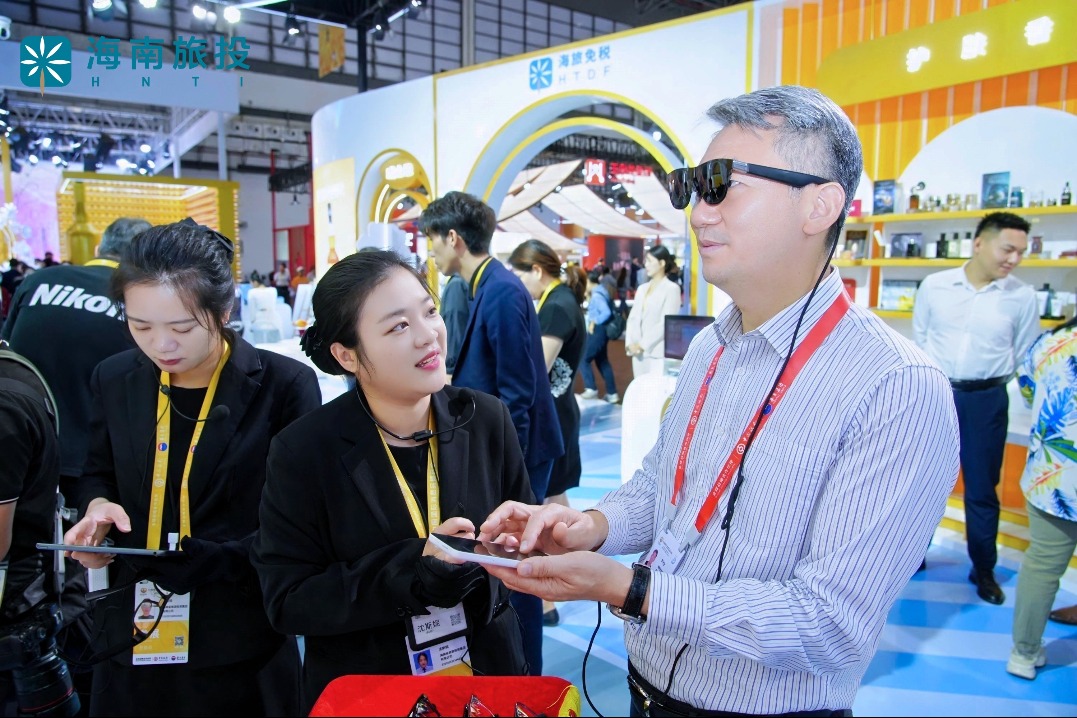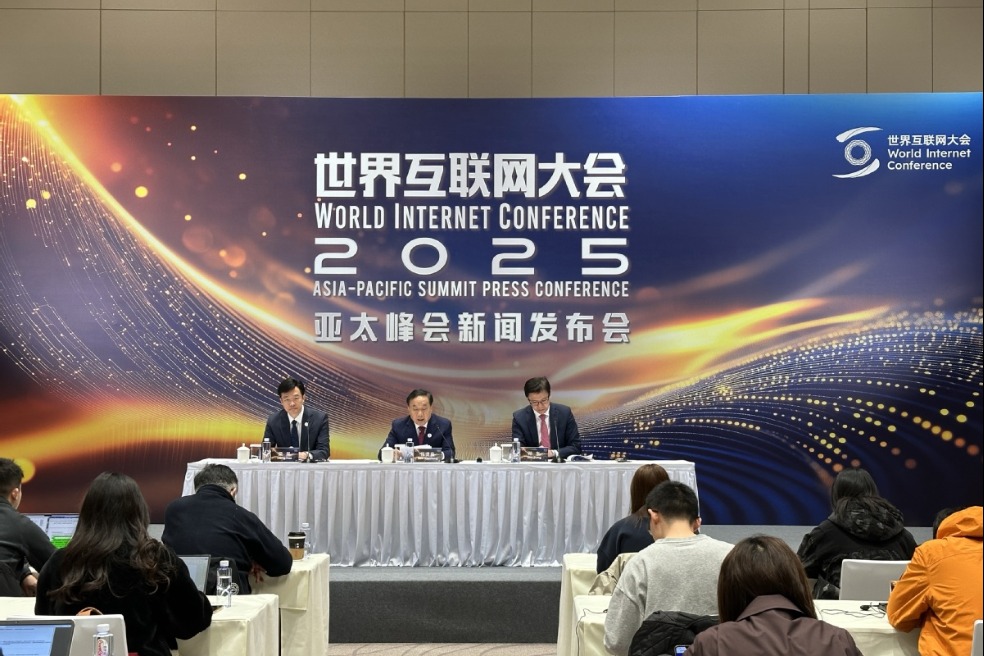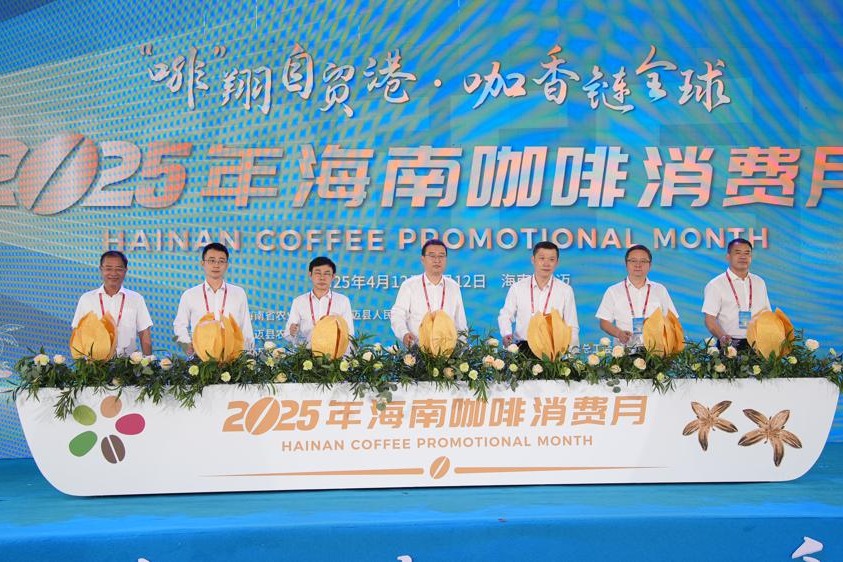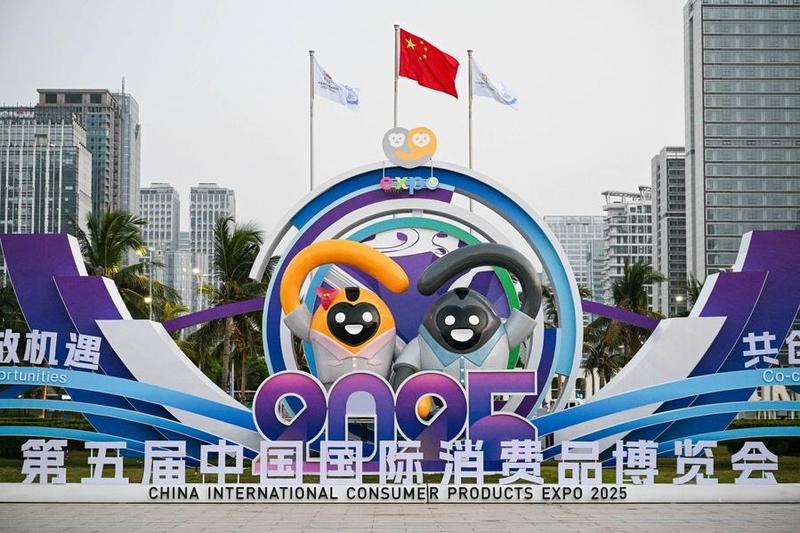Trade-ins giving shot in arm to retailers
Incentives boost switch to electric vehicles amid China's green drive

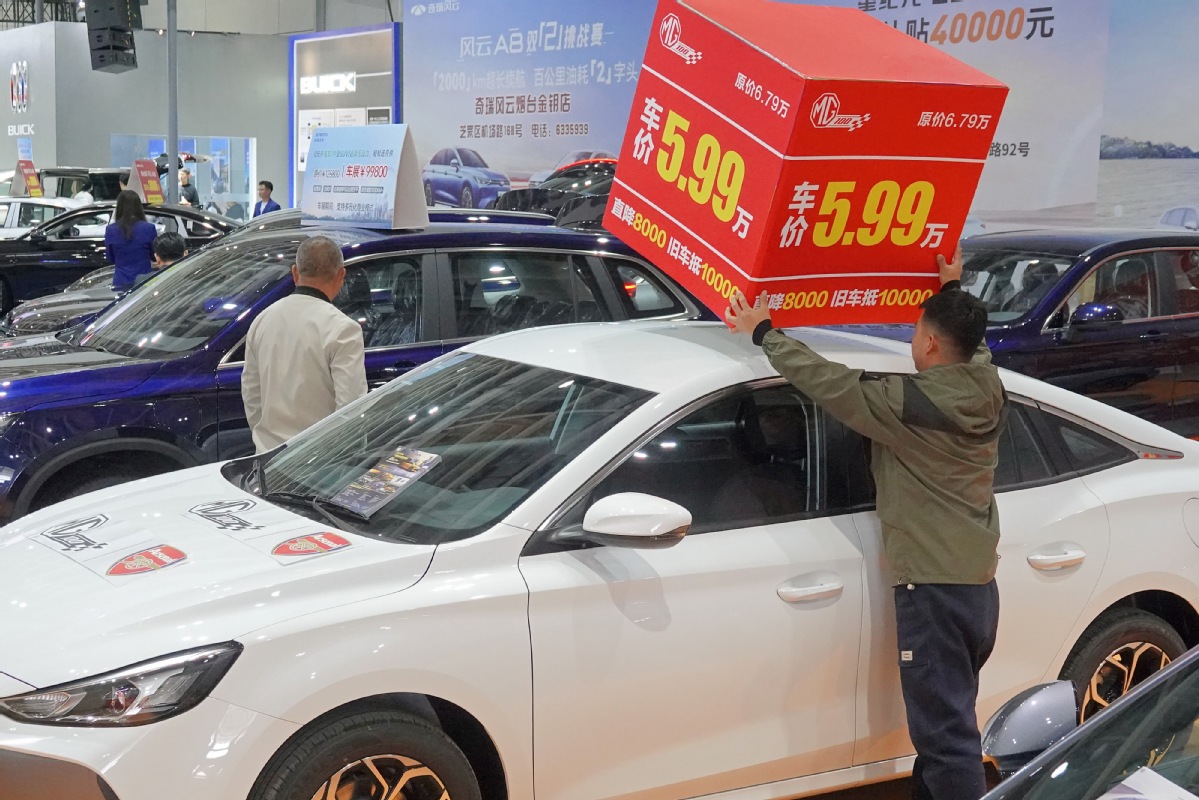
"With improvements in people's living standards, demand for quality high-performance products and environmental protection standards are on the rise. Meanwhile, energy conservation, emission reductions and green development have been put high on China's development agenda," said Hong Yong, an associate research fellow at the Chinese Academy of International Trade and Economic Cooperation's e-commerce research institute.
The old-for-new program is conducive to weeding out consumer goods with high energy consumption and declining performance, bolstering industrial upgrade as well as further stimulating purchasing appetites of consumers and improving people's quality of life, Hong said.
Zhu Keli, founding director of the China Institute of New Economy, said the implementation of trade-in policy measures regarding consumer goods — especially automobiles and home appliances — is of great significance in effectively shoring up consumer confidence, unleashing domestic demand potential and stabilizing market expectations.
"Many consumers are now willing to replace their traditional fuel vehicles with more environmentally friendly electric vehicles, and the launch of the new policy will undoubtedly give a strong boost to this transition," Zhu said.
Sales of NEVs in China expanded 33.5 percent year-on-year to 850,000 units in April, accounting for 36 percent of total vehicle sales, said the China Association of Automobile Manufacturers. NEV output totaled over 870,000 million units last month, increasing 35.9 percent year-on-year, the CAAM said.
Zhu added that with continuous advances in technologies, more intelligent and energy-saving new household appliances will gradually replace the old ones. The "trade-ins "in the field of home decor, kitchen appliances and bathroom products will also drive the development of new materials and smart home device industries.
Major e-commerce platforms have announced plans to boost the new round of trade-ins of consumer goods.
JD said it will team up with industrial partners to invest 6.5 billion yuan to provide subsidies for the replacement of home appliances, electronic devices and automobiles. The number of users participating in the trade-ins skyrocketed more than 140 percent year-on-year in March, JD added.
Alibaba Group's online marketplace Tmall said it will invest 500 million yuan in the "old-for-new "program. Tmall said since late March, the value of trade-in deals involving home appliances and smartphones on the platform has surged 90 percent compared with a year earlier.
Chinese home appliance manufacturers are ramping up efforts to offer subsidies to consumers who buy green and intelligent home appliances and support the recycling of discarded products.
The latest policy measures aimed at boosting trade-ins of consumer goods will effectively stimulate purchasing enthusiasm among consumers for home appliances, and bolster the transformation and upgrade of the traditional white goods sector, said Zhou Yunjie, chairman and CEO of Chinese home appliances giant Haier Group.
As Chinese consumers are exhibiting increasing preference for intelligent and green home appliances amid the rapid development and application of artificial intelligence technology, domestic white goods manufacturers are speeding up their layouts in AI and chips, which will be conducive to promoting technological advancement of the whole industry, Zhou said.
According to Zhou, the Qingdao, Shandong province-based company is ratcheting up efforts to recycle discarded household appliance products, with about 2 million units of such products dismantled and 30,000 metric tons of materials recycled each year.
Gree Electric Appliances, a major Chinese home appliance manufacturer based in Zhuhai, Guangdong province, recently announced plans to invest 3 billion yuan to promote trade-ins of consumer goods.
Gree said these specific measures will further improve the enthusiasm of users purchasing home appliances and help enrich the application scenarios of new technologies, while consumers can enjoy more cost-effective products with high quality.
It is also conducive to encouraging shoppers to choose energy-saving and environmentally friendly products, which not only reduces energy consumption and environmental pollution, but also helps accelerate the development of a circular economy and boost the green transformation of industries, the company said.
Currently, Gree has built six recycling bases for discarded home appliances and more than 30,000 offline recycling sites. By the end of 2023, Gree had recycled, dismantled and otherwise handled 56 million units of discarded electronic products, recycled 850,000 tons of metals such as copper, iron and aluminum, and reduced carbon emissions by 2.8 million tons.
Data from the Ministry of Commerce showed that as of the end of 2023, the number of household appliances in major categories such as refrigerators, washing machines and air conditioners had exceeded 3 billion units, which presents huge potential for renewal and replacement.
Pei Dongmin, deputy general manager of the home appliance business unit at Beijing-based market consultancy All View Cloud, said, "The new trade-in measures will not only unleash consumption demand for home appliances and bolster stable growth of the home appliances sector, but also give a boost to technological and product upgrades in emerging categories, and the green and smart transformation of industries."
Liu Buchen, an independent researcher tracking the home appliance sector, said that currently, the country's recycling system for such products has made great progress, but public awareness has not kept up and there is a large number of unwanted home appliances that have not made their way to regular recycling channels.
Moreover, consumers need to get additional support to exchange old home appliances and electronics for more green and intelligent alternatives, while Chinese home appliance enterprises should expand recycling channels and drive the popularization of energy-saving products, Liu said.


















